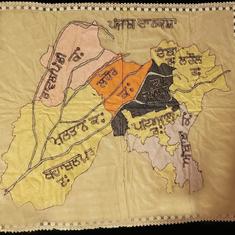Indian Muslim women are in the midst of creating history. Perhaps for the first time since the controversial Shah Bano case of 1985, a growing movement for the legal rights of Muslim women in matters of marriage and divorce has captured national attention. At the heart of the movement is an ongoing case in the Supreme Court in which two women and one Muslim women’s organisation have demanded a ban on unilateral, instantaneous triple talaq.
A practice already banned in 22 Islamic countries, triple talaq allows a Muslim man to divorce his wife by merely uttering the word “talaq” (divorce) three times, all in one go. But husbands are also increasingly divorcing their wives through speed post, text messages, on Facebook or in phone calls, leaving the woman with no rights to maintenance. If the husband is later willing to take back the divorced wife, she is forced to go through nikah halala – a practice that allows her to return to her first husband only after marrying another man, consummating the marriage and then divorcing him.
In February, when triple talaq victim Shayara Bano approached the Supreme Court for justice, she didn’t restrict her fight to unilateral divorce alone. Her petition also demands a ban on the practices of nikah halala and polygamy. Previous, unsuccessful petitions in the apex court have attempted to counter these practices through demands for a Uniform Civil Code. But Shayara Bano’s is the first case to take on these patriarchal practices as violations of a woman’s fundamental, Constitutional right to equality before law irrespective of gender or religion.
A landmark case in the making
The reaction to Shayara Bano’s case has been a clear reflection of the changing attitudes of Indian Muslims to Muslim personal law. In April, inspired by Bano, Jaipur resident Aafreen Rahman filed her own petition to protest the sudden divorce her husband sent through speed post. Rahman is now the second petitioner in the Shayara Bano case.
Shaista Amber, president of the All India Muslim Women’s Personal Law Board, also spoke out unequivocally against triple talaq.
In the past six weeks, the non-profit Bharatiya Muslim Mahila Andolan launched a nationwide campaign to gather the support of ordinary Muslims against unilateral divorce, nikah halala and polygamy, collecting 50,000 signatures of Muslim women and men to bolster their case. Last week, the Andolan’s campaign prompted the National Women’s Commission to announce that it will completely back Shayara Bano’s petition and become a party to the case. The Bharatiya Muslim Mahila Andolan has already intervened in the Shayara Bano case to become an additional party.
“This has now become a class action suit,” said Balaji Srinivasan, Shayara Bano’s lawyer, using the legal term for a lawsuit in which a group of people with similar grievances caused by the same product or action sue as a group. “At least one more victim of triple talaq will be added as a petitioner once the courts resume...For the first time, such a case is backed by a strong movement from within the community. The time has come for triple talaq to go.”
At the forefront: Shayara Bano

When she agreed to an arranged marriage in 2001, Shayara Bano was a confident sociology postgraduate from a simple, middle-class family in Kashipur, Uttarakhand. Fourteen years later, when her husband Rizwan Ahmed sent her back to her maternal home from Allahabad, she was depressed, defeated and traumatised from years of domestic abuse.
Speaking to Scroll.in from Kashipur, Bano said that Ahmed had tortured her for dowry right from the time they got married. He had forbidden her from meeting her sister and threatened her regularly with divorce. They had two children, but he forced her to have at least six abortions. “Or seven, I lost count,” said Bano.
In April, 2015, Ahmed dropped Bano at Kashipur along with their son and daughter, but returned soon after to take the children away. For months, Bano and her family tried to reach out to Ahmed, hoping that he would eventually return for his wife. “We could never reach his phone, but occasionally he would call and threaten to marry another woman,” said Arshad Ali, Bano’s younger brother.
“Then in October, he told us he’s sending some property papers through speed post that Shayara must receive,” said Ali. When she opened the papers, all Bano found was a document with the word “talaq” written three times.
“It was over just like that,” said Ali. “Even our local mufti (priest) told us that the divorce was valid.”
With the support of her brothers, Bano approached a local lawyer who transferred the case to Srinivasan at the Supreme Court who proposed a case that could be wider in scope.
For the first time, Bano discovered that instantaneous triple talaq was an un-Quranic custom outlawed in 22 Muslim countries. She had to decide whether she wanted to go beyond her own divorce and pursue a legal fight for the rights of all Muslim women by challenging the very power vested in all-male Muslim law-making bodies in India.
“I had not seen or spoken to my children for almost a year,” said Bano. “It was a moment when I had lost all hope in life, and going ahead with the case felt like the only option.”
She added: “I have now met a lot of other women who have been through a similar ordeal, but they are not able to come forward and fight. I don’t really know where I got the strength from.”
Bano has been overwhelmed by the support she has received from Muslims across the country, but doesn’t spend much time thinking about the prospects of the case. “I may or may not go back to my husband once this is over,” she said. “But I just want my children back.”
Afreen Rahman

It took just three months for 28-year-old Afreen Rahman’s dream marriage to turn into a nightmare. The MBA-graduate from Jaipur married an Indore-based lawyer in 2014 after meeting him via a matrimonial website. “He seemed like a decent, normal man from a reputed family,” said Rahman. “So I agreed to the match after the first meeting itself.”
Her brothers took a loan of Rs 25 lakh to fund their sister’s “four-star” wedding.
“The first time he hit me, it came as such a shock,” said Rahman. “Then it became regular, and my mother-in-law beat me too. It was all about dowry.”
Rahman chose not to say a word to her mother and brothers back home, because of the loan they still had to repay. But the story of her ordeal became public when she was kicked out of her marital home in August 2015, a year after she was married. “My family kept asking him to take me back, because all of us really wanted my marriage to work,” said Rahman. “He picked me up nine days later, only to throw me out again the next month.”
In October, when Rahman’s mother died in a bus accident, her husband visited for a few days, showing her some signs of sympathy. “Then he left and completely blocked me on the phone and all social media,” she said. In January, when she opened a speed post letter from him, she was caught off guard.
“It was a divorce, a completely un-Islamic triple talaq,” said Rahman. “I was not even given a reason for it. Our local qazi said a divorce can happen only after the husband and wife get three months to reconcile, but I didn’t even get that option.”
Distraught and feeling helpless, Rahman soon found courage when she came across local representatives of the Bharatiya Muslim Mahila Andolan and joined the organisation. “With their help, and with the inspiration of Shayara Bano, I decided to go to court,” said Rahman, whose petition was incorporated in Bano’s case and accepted in the apex court last month.
“I am glad that our individual cases have been combined to make one big petition,” said Rahman. “I was wronged, but this issue is so much bigger than just me. The male leaders have been misusing Islam, and they have made a mockery of marriage.”
Zakia Soman and Noorjehan Safia Niaz

Zakia Soman and Noorjehan Niaz are co-founders of the Bharatiya Muslim Mahila Andolan, a non-profit organisation that has managed to enlist a staggering 30,000 members from 15 states since its launch in 2007. The organisation has been in the news in the past year for spearheading a legal battle to demand women’s rights to enter mosques and Mumbai’s Haji Ali dargah. They also conducted the first countrywide survey of Muslim women, which found that 92% of the women want a ban on triple talaq.
The Andolan also regularly conducts “Sharia adalats” or Sharia-based informal courts where Muslim women’s domestic problems are addressed by female qazis (Islamic judges). These adalats have enabled the Andolan to collect hundreds of firsthand stories of women left destitute because of triple talaq, nikah halala or polygamy. Despite the testimonies they have collected, male-dominated bodies like the All India Muslim Personal Law Board insist that such practices are a “non-issue” that affect only a fraction of the community.
“It has been an anomaly in our democracy that, unlike other communities, the sole representatives speaking for Muslims are always male religious leaders,” said Soman, a former university lecturer and newspaper editor, who lives in Ahmedabad. “But these patriarchal leaders are completely out of touch with the ground realities in the community.”
On the ground, Soman and Niaz constantly get calls and emails from ordinary Muslim men and women who want to join the fight against triple talaq. “The 50,000 signatures they collected in support of Bano’s case has been a game-changer,” said lawyer Srinivasan. “It clearly shows that there is a demand for change from within the community.”
Soman and Niaz are not done yet. “Even as we participate in the case, we will continue to go door-to-door across the country and collect many more signatures,” said Soman.










